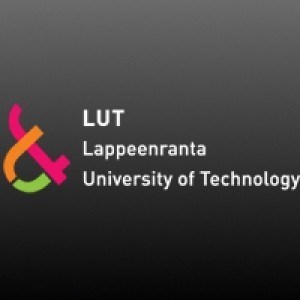Photos of university / #aaltouniversity
Collaborative and Industrial Design at Aalto University offers a comprehensive and innovative educational experience focused on the intersection of design, technology, and sustainability. This multidisciplinary program is designed to equip students with the skills necessary to tackle complex design challenges in today's rapidly evolving global landscape. Throughout the program, students engage in hands-on projects, collaborative work, and creative problem-solving to develop innovative solutions that are user-centered and environmentally responsible. The curriculum emphasizes critical thinking, digital fabrication, prototyping, and user experience design, fostering a deep understanding of industrial processes and sustainable materials. Students have access to state-of-the-art facilities, including workshops, laboratories, and design studios, enabling them to experiment and refine their ideas in a creative environment. The program encourages international collaboration and interdisciplinary approaches, preparing graduates to work effectively in diverse teams across industries such as manufacturing, service design, and urban development. Graduates of the Collaborative and Industrial Design program are equipped to become leading designers, innovators, and entrepreneurs, capable of making meaningful contributions to society through innovative design practices. The program also emphasizes entrepreneurship and business skills, supporting students in transforming their ideas into viable products and services. Overall, the program fosters a dynamic learning environment that combines theory, practical skills, and creative exploration, preparing students to shape the future of industrial and collaborative design on a global scale.
The Master’s programme in Collaborative and Industrial Design (CoID) focuses on design's role in society. It provides skills to work as design entrepreneurs and in a range of roles within industry, business, communities, education and the government. The programme extends industrial design into interaction design, service design, co-design and other emerging fields in which design activities can enhance the quality of the environment and people’s life. Students learn empathic, critical, strategic and technical skills needed in design innovation processes. They are also encouraged to explore novel roles in design industry.
The CoID programme is based on design-based problem setting, elaboration, problem-solving and communication. An essential part of the education is project-based. The contents of the education cover: design thinking and communication; briefing; concept design and prototyping; research, implementation and evaluation; and new and emerging themes in design. These skills are applied all the way from product development for business and industry to problems originating from the public sector and non-governmental organisations.
Applicants for the CoID programme in apply in the master’s level admissions in the field of Art and Design. The programme seeks students with skills to develop processes and structures, to create innovative design solutions both individually and in team settings, with personal and artistic insightfulness, ideation skill, and goal-orientation and motivation.
Eligible applicants for the programme have earned a Bachelor of Arts (Art and Design) or completed equivalent studies. The Master’s Programme in Collaborative and Industrial Design consists of advanced studies which can be completed in two years.
Students are granted admission to the programme through a two-phase process. In the first phase students are evaluated based on the application as a whole, including portfolio, previous studies, CV and letter of motivation. In the second phase, the most suitable applicants are invited for an interview, from which a smaller subset of applicants is offered a study place. Applicants accepted to the programme may be required to take supplementary studies.
Financing studies for the Collaborative and Industrial Design programme at Aalto University are designed to support students throughout their academic journey, ensuring access to quality education and resources. The university offers a range of funding options, including government-funded student financial aid, scholarships, grants, and student loans. Finnish students and residents are generally eligible for the Finnish Student Grant System, which provides monthly financial aid to cover living costs, and student loans through the Finnish State Treasury, with favorable repayment conditions. International students may seek scholarships based on academic merit or need, which are awarded by Aalto University or partner organizations, and they can also explore external funding sources such as government or private grants from their home countries. Additionally, students are encouraged to apply for part-time jobs, internships, and research assistant positions within the university to supplement their income, gaining professional experience alongside their studies. The university informs prospective and current students about available funding opportunities through its dedicated financial aid office and online portals, providing guidance on application procedures and eligibility requirements. For students enrolled in master's programmes like Collaborative and Industrial Design, specific scholarships may be available for international applicants, as well as research grants if involved in academic research projects. It is recommended that students plan their finances early and explore multiple funding sources to ensure a smooth educational experience. Overall, Aalto University is committed to making higher education accessible by providing comprehensive financial support options tailored to diverse student needs, fostering an inclusive academic environment where students can focus on their creative and professional development without undue financial burden.
The Collaborative and Industrial Design programme at Aalto University offers students a comprehensive education in the fields of design with a focus on both collaborative projects and industrial application. The programme emphasizes innovative design processes, user-centered design, and sustainable development, preparing graduates to excel in multidisciplinary teams. Students benefit from a dynamic learning environment that combines theoretical knowledge with hands-on practical experience, often involving interaction with industry partners and real-world challenges. The curriculum covers core areas such as product design, service design, design research, and prototyping, fostering creativity and technical skills. Throughout their studies, students are encouraged to develop a critical understanding of the social, cultural, and environmental impacts of design, promoting responsible innovation. The programme incorporates advanced digital tools and materials, enabling students to experiment and realize their ideas effectively. Collaboration is a fundamental principle, with students frequently working in teams across disciplines, simulating professional practice. The programme also places a strong emphasis on sustainability, encouraging environmentally conscious solutions and the use of eco-friendly materials. Graduates of the Collaborative and Industrial Design programme are equipped to pursue careers in product development, design consultancy, user experience design, and innovation management. They are prepared to adapt to evolving industry standards and to contribute creatively and practically to various sectors, including technology, fashion, furniture, and urban development. The faculty comprises internationally recognized experts who bring diverse perspectives to the curriculum, fostering an inclusive and inspiring academic community. The programme is conducted in English and typically takes four years for a full-time student to complete. Admission is competitive and based on a combined evaluation of academic records, portfolio, and motivation. Aalto University’s collaborative environment, combined with its emphasis on sustainable and user-centric design, ensures that graduates are well-equipped to meet the challenges of contemporary design industries worldwide.







